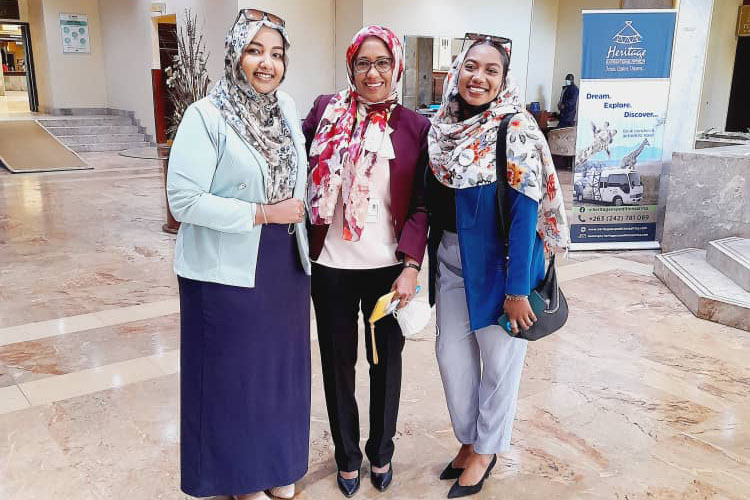As the Sudan is facing the upheaval of war, some UNMC-trained Sudanese are still providing medical services on the ground, even as others have been forced to flee their homeland and the program that trained them is in limbo.
Nada Fadul, MD, professor in the UNMC Division of Infectious Diseases and a native of Sudan, created the Community Medical Response Team program in 2021 to address disparities in accessing COVID-19 treatment and prevention in Sudan. The UNMC Sudan ECHO Hub, part of a nationwide program known as Project ECHO, provided tele-mentorships to Sudanese health professionals and students during the COVID pandemic, resulting in an increase in vaccination clinics and access to care. The training continued in 2022 and focused on implementing community oriented primary health solutions for underserved regions in Sudan.
“During this war, a lot of the team members we were training have been impacted by displacement from their city or taking refuge in neighboring countries,” Dr. Fadul said. “But some are still in Sudan and running the clinics that UNMC helped them create.”
In fact, Hadeel Mohamed, one of Dr. Fadul’s students and UNMC ECHO director of training and development in Sudan, ran a three-day clinic in Khartoum earlier this month, where they treated close to 300 patients for various illnesses, including chronic diseases, infections and malaria. On May 18, Khartoum again was hammered by air strikes.
Dr. Fadul said she has been in contact with several scholars involved in the UNMC Project ECHO/CMRT program; there are some she has not been able to reach. The ECHO program is continuing but has shifted from training health professionals on primary care, to training them on emergency and trauma care and case management of infectious diseases outbreaks.
The non-profit SuDRO (Sustainable Development Response Organization), which raises funds to help support the project, currently is accepting donations to provide medical supplies for the support of the students continued clinical efforts.
“I hope all our students are OK,” Dr. Fadul said. “Even in the midst of the fighting, they still are delivering essential health care. We are working through SuDRO to show them that UNMC is still supportive of their efforts.”
